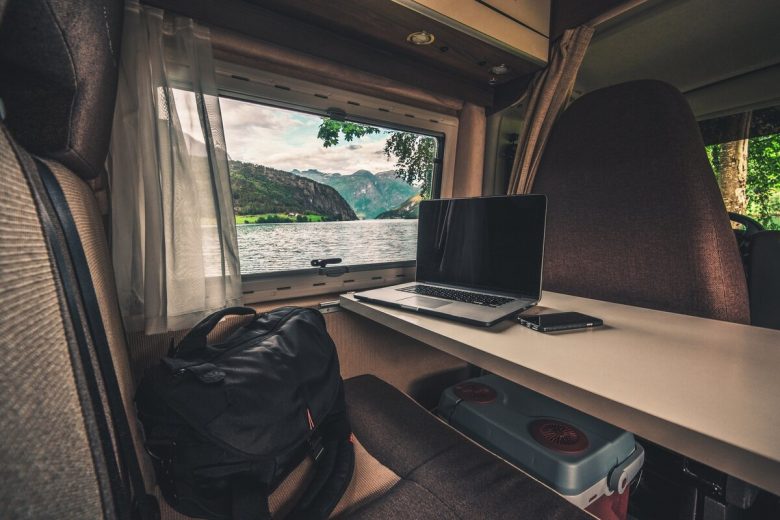As a world traveler working remotely, you’ve learned how to live more with less. However, a critical item to running your business and staying connected is having WIFI access. It’s more important than a comfortable pillow in a Bangkok hostel. The pandemic has many people experiencing living and working a remote lifestyle. As we begin to return to traveling, more people than ever will find themselves working remotely and working in remote locations. We have put together some helpful tips on getting you connected while on-the-go.
Companies are becoming increasingly global, and this gives people the opportunity to work from just about anywhere. Digital nomads are no longer some elite group of computer programmers living on a tropical beach. It’s become much more common. We traveling entrepreneurs have the freedom to move around and see places that inspire us, but that freedom and inspiration may be limited by WIFI accessibility.
Whatever your circumstance is, whether you’re living in an RV or bouncing around Airbnbs, it’s essential to have a good, solid WiFi connection that is uninterrupted. If you’re new to the remote work life, here are some tips and tricks we’ve found. It’s not just about WiFi either. There are options for good data plans in many countries, and you’ll be surprised at how inexpensive they can be.
Choose The Best Service Provider For Getting A Solid Hotspot
You can’t always count on great WiFi at all the places you stay around the world. Do some research to find the best company in whatever country you’re in at providing the cheapest but fastest and reliable data plans. In Thailand, for example, you can get unlimited mobile data monthly for about $10 U.S. This alleviates a lot of the stress of finding WiFi while you’re moving around, but it has to be reliable. Another bonus of going this route is that it can be safer. If you want a private network for security purposes, this is the way to go. If you happen to be living in a camper or a rustic bungalow by the beach, you’ll want a company that offers coverage beyond the big cities.
Something important to note is this:
Some plans are going to limit internet speeds through bandwidth throttling. The company is intentionally slowing down service, which depends on your location and peak time of use. Make sure to ask about this before you commit.
Take it from someone who knows. There is nothing more frustrating than being intentionally slowed to unusable internet speeds in the middle of a project. Typically, a prepaid plan in North America will slow down your service during peak times and congested areas. This slowdown isn’t global, but it does exist in some places.
You’ll also want to consider choosing a plan based on the amount of monthly data they offer. If you have to do much streaming because you’re on zoom calls or are uploading videos, consider a monthly plan that offers more than 40 GB of data. Otherwise, less than 30 GB should work for most remote workers.
Even if a phone plan says it’s unlimited, this isn’t always accurate. It will start to slow down or malfunction after a certain amount of mobile hotspot usage.
You Don’t Necessarily Need a Mobile Hotspot Device
There’s no need to get complicated. Most of the digital nomads out there just use their smartphones as a hotspot. You may want to use a second line for a dedicated mobile hotspot device, but technology worldwide is optimized, that this usually isn’t necessary. If you do opt for a mobile hotspot device, there are benefits to unlimited data. However, it can be costly.
Phone Plans for International Travel
When you travel abroad, there are plenty of internet options. It may be cheaper to buy an unlocked phone in the country you’re traveling in and take advantage of a cheap monthly plan. Basic internet outside of your home country can cost as much as $300 per month if you’re using the phone plan you already have. Roaming is still costly, so leave your phone at home or turn roaming off. Every seasoned digital nomad knows that local SIM cards in most countries are reasonable, especially in Asian and developing countries.
Regardless of what plan and device you go with, check things out first. Go to a digital nomad hub wherever you’re traveling and ask about what service is best for internet use. Almost anyone will be happy to help you. You can search online as well. Know what your needs and requirements are, and it should be pretty easy to get the plan that works for you.














Pingback: 3 WiFi Tricks For Digital Nomad Business Owners – Entrepreneur – Start, Run and Grow Your Business
Pingback: 3 WiFi Tricks For Digital Nomad Business Owners - StartUp Mindset » The Wordpress Article Directory